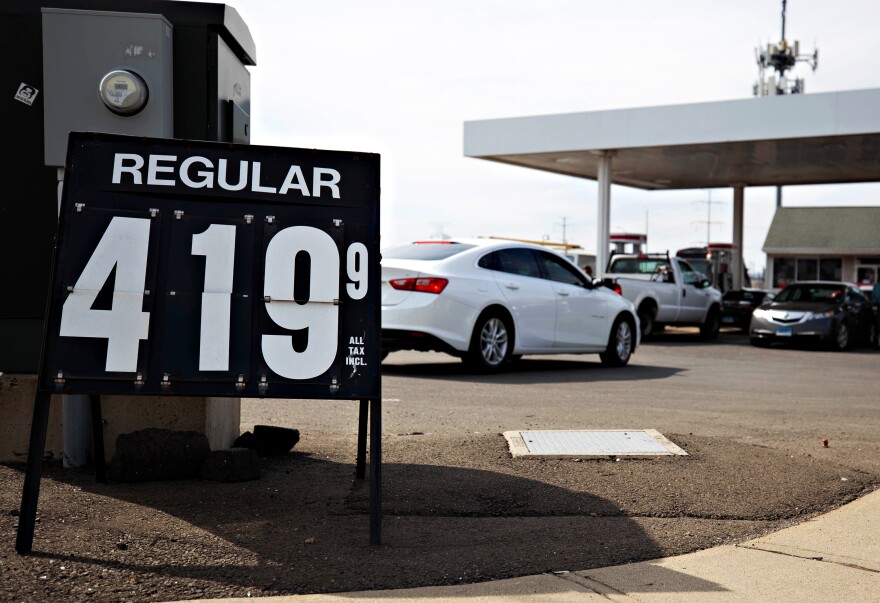On a sunny and cold Thursday in New Haven, cars lined up at Forbes Premium Fuel. Drivers waited to fill up on regular gas priced at $4.19 per gallon, lower than the statewide average. AAA recorded an average cost of $4.47 per gallon for regular fuel in Connecticut.
Under the awning, Eva Spivey was pumping gas and thinking ahead. “I’m going to get an electric car, definitely for my next car,” she said, “regardless of if the prices go down because this is ridiculous.” Spivey paid around $45 for 10 gallons of gas — she was buying mid-grade.
Consumer price index data released Thursday by the Bureau of Labor Statistics shows inflation is up 7.9% since last February before seasonal adjustment. That’s the largest yearly increase in over 40 years. Fuel has been hit the hardest: the energy index rose 25.6% in the last year, and gasoline rose 38%.
Gas prices rose 5.4% in February, according to the news release. But that index is likely to show the impact of Russia’s invasion of Ukraine on fuel prices next month, according to Don Klepper-Smith, chief economist and director of research at DataCore Partners.
But consumers don’t need data to understand that costs are up and Klepper-Smith said the negative impact on the economy won’t wait either. “If this situation does not get resolved within the next several months, then I think the probability of a recession becomes likely, because consumers spend as they feel,” he said.
Spivey said she hasn’t been driving any less, there’s no room in her life to cut out miles, and she expects gas prices to continue to rise. At the next pump over, Daymon Patterson filled up his truck with premium fuel. “Everytime I think about gas, I start crying,” he said with a chuckle.
Consumers are feeling the pinch, Klepper-Smith said. He found that these higher fuel prices mean Connecticut households will have to spend an additional $1,500 to $2,000 over the course of a year. That’s money they’re not spending elsewhere, he said.
“As goes the consumer economy, so goes the general economy,” Klepper-Smith said. Consumer confidence will be key to the next few months, he said, because consumers control two thirds of the economy through personal consumption. If they start spending less, the economy could slow down.
But consumers are resilient, Klepper-Smith said. At the pump, that proved to be true. Patterson said he thinks the economy is in decent shape, and he won’t be driving any less even with prices as they are. Spivey finished filling her tank, laughed, and said, "I'm just kind of trying to ride it out and get a better job."





